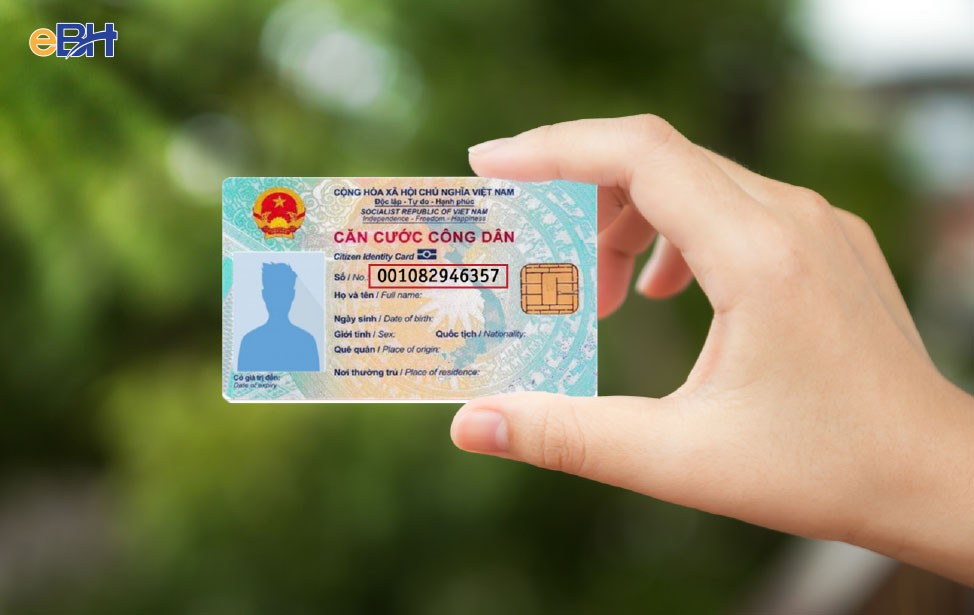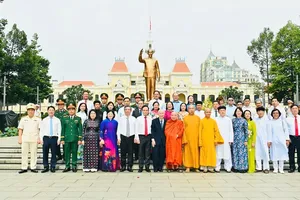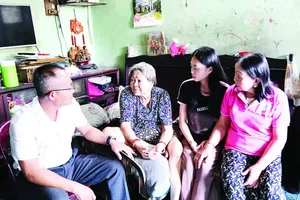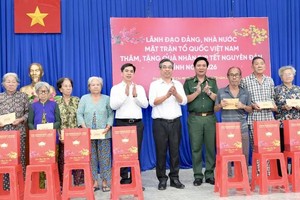
The Cultural and Social Affairs Committee of the HCMC People’s Council, along with relevant departments, has collaborated to review and address challenges faced by young people and teenagers (aged 16-18) in special situations. These individuals may lack essential personal documents such as birth certificates, identification numbers, and national ID cards.
Head Cao Thanh Binh of the Cultural and Social Affairs Committee emphasized that enhancing document issuance for these vulnerable populations is a humanitarian effort as providing children with complete identification papers enables their educational and employment opportunities in the future. However, this task is complex and requires the commitment of local officials and cooperation across different levels and departments to trace the legal origins of these children.
To tackle this issue, the committee worked alongside the Department of Labor, Invalids, and Social Affairs, the City’s Trade Union, the Police Department, the Department of Justice, and the Association for Child Rights Protection in conducting surveys across districts, wards, and Thu Duc City.
Recently, Ngo An Ky, a 17-year-old orphan residing in Binh Tan District, received assistance in completing the necessary procedures for obtaining an ID card. The 17-year-old girl, who previously lacked personal documents, faced challenges due to her living situation in a temple.
During the survey, local authorities and related agencies collaborated to find flexible solutions and remove obstacles, allowing An Ky to obtain her identification papers. She expressed her joy and plans to pursue higher education now that she has the necessary documentation.
In addition to An Ky, the Binh Tan district authority has also coordinated support to provide identification papers for 33 out of 49 other children in similar circumstances.
Roughly 1,100 children with special circumstances are residing in various facilities in Binh Tan District. According to Vice Chairwoman Le Thi Ngoc Dung of the Binh Tan District People’s Committee, the local administration has reviewed all cases to instruct them to do administrative procedures for the application of birth registration, identification numbers, permanent residence, and personal identification cards.
However, some 49 children are still facing document-related challenges and legal procedures. Following a working session with the Cultural and Social Affairs Committee of the Ho Chi Minh City People’s Council, along with participation from relevant units, many difficulties have been flexibly resolved to facilitate further support for the remaining children.
Other localities are also compiling lists of children and young people (aged 16-18) who lack personal identification documents. They are collaborating with relevant units to expedite assistance with the necessary procedures for obtaining personal identification papers. Currently, Tan Phu District has been supporting 16 inhabitants, Thu Duc City is assisting 43 dwellers and District 7 is supporting 24 residents.
Vice Chairman of the District 7 People’s Committee Chau Xuan Dai Thang emphasized that children without proper documentation face significant challenges during administrative processes.
Afterward, the Cultural and Social Affairs Committee of the Ho Chi Minh City People’s Council and relevant departments, obstacles have been removed for localities to carry out procedures for these children. Continuing this work, District 7 will continue to review to guarantee that the citizen rights of all children under 18 years old in the district will be protected regarding personal identification documents.
Mr. Cao Thanh Binh emphasized that to support these children, the Cultural and Social Affairs Committee, along with collaborating units, must clearly identify specific reasons for the inability to obtain personal identification documents. Rather than using vague reasons such as undefined parents or lack of guardianship, a standardized form developed by the police and judicial sectors will help districts and relevant units precisely record how many special cases need consideration and pinpoint the specific challenges faced by these children.
He added that based on the survey, most of these cases have been promptly resolved through collaborative efforts. The goal is to ensure that all citizens have their information in the national population database, contributing to safeguarding the legitimate rights and interests of citizens and aligning the Project 06 more closely with the reality and lives of city dwellers.
























